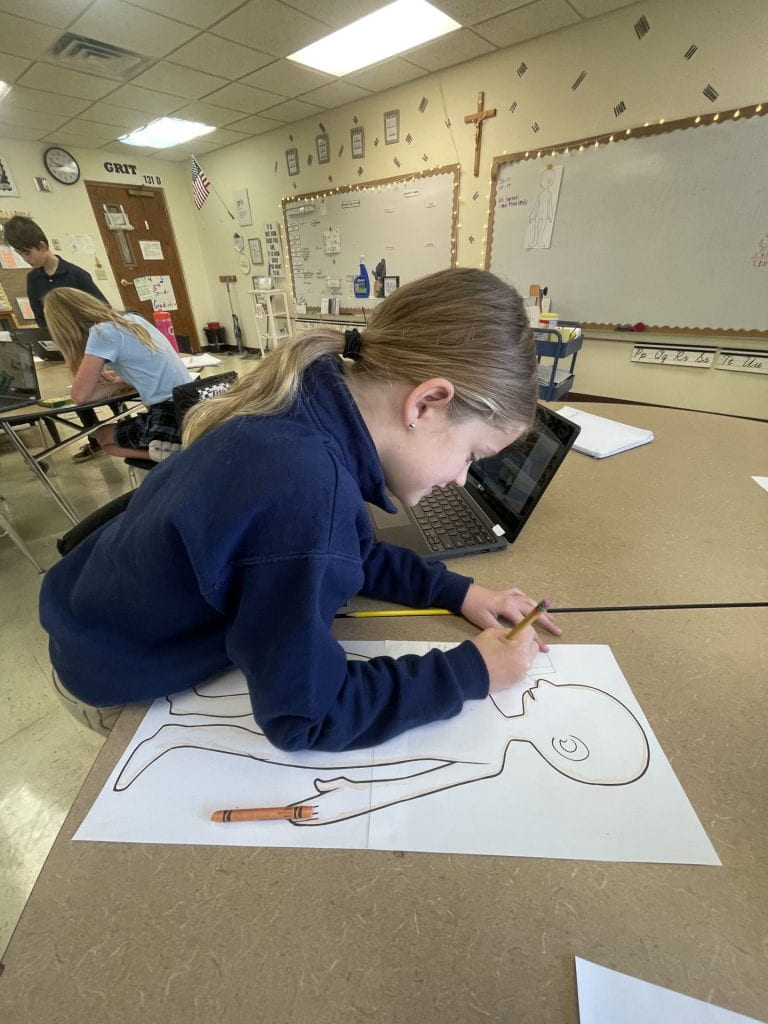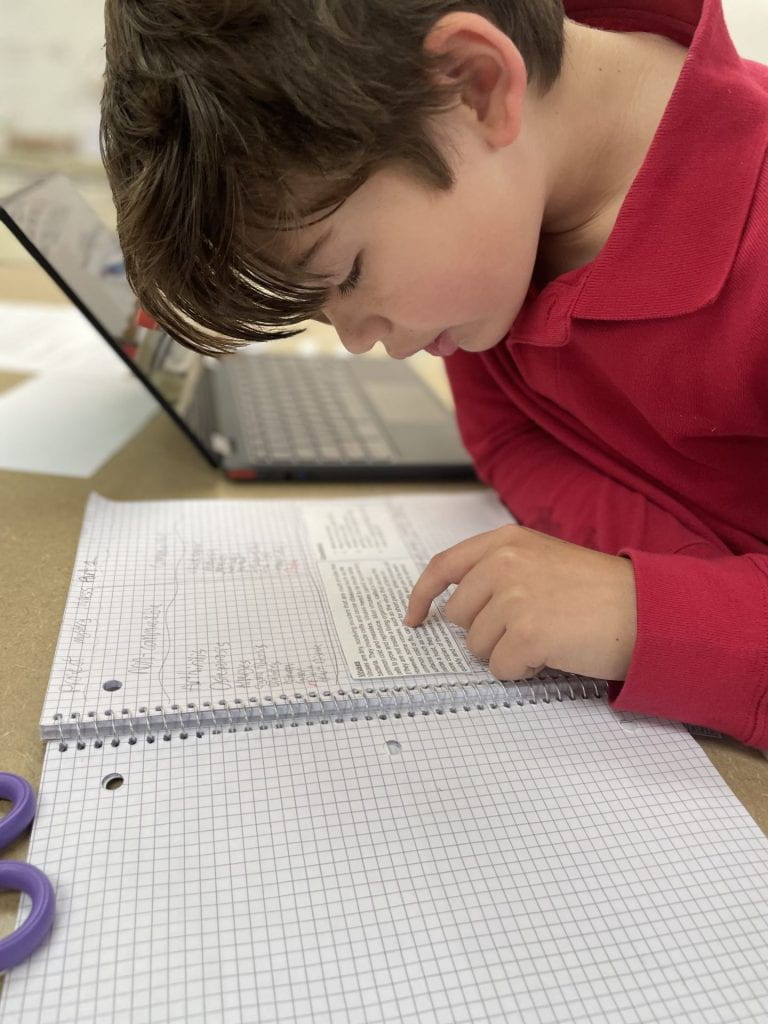This month we started a new science module called “Infection Detection” as part of the Project Lead the Way Science program. The unit starts off with a mysterious illness being spread around a fictitious school. Our detectives will learn important skills and information to help find out the illness that has been spreading to the students. Read below to explore the various engaging activities and learning experiences the class is involved in during this journey of understanding and preventing infections.
Activity 1: Germs, Germs Everywhere
The unit began with a simple yet powerful activity called “Germs, Germs Everywhere.” In this session, students play the classic game “heads up seven up.” While the game might seem like a simple pastime, it quickly illustrates how easily germs can spread from one person to another. Students experienced firsthand how close contact and shared surfaces can facilitate the transmission of diseases. This activity definitely served as a wake-up call to the invisible world of microorganisms that constantly surround us.


Activity 2: Preventing the Spread
In the second phase of our module, we discovered the importance of personal hygiene and infection prevention. We conducted experiments to evaluate the effectiveness of various cleaning agents such as soaps and hand sanitizers. The class tracked the removal of germs and the reduction of contamination on their hands. Through this hands-on experience, they gained insights into the practical measures that can be taken to reduce the risk of disease transmission in daily life. This activity encouraged critical thinking and scientific reasoning while emphasizing the significance of regular handwashing.



Activity 3: Infection Fighters
The human body is a marvel of natural defense systems designed to protect us from harmful microorganisms. In “Infection Fighters,” we learned about the body’s innate immune responses and the vital role of different organs and cells in safeguarding our health. They gained an understanding of how these mechanisms work together to keep us healthy, even in the presence of potentially harmful bacteria and viruses. This activity gave us a sense of appreciation for the body’s resilience and it’s ability to protect us!



The Project/Problem Phase
At this point in our unit, we started to transition to the project/problem phase where we take all the knowledge and skills we’ve acquired and apply them to real-world scenarios. They’ll explore various communicable diseases and microorganisms, analyze student interviews and catalogue symptoms to identify patterns. This phase encourages critical thinking, problem-solving, and collaboration as students work together to determine the illness being spread within our fictional school.
Using epidemiology practices, students engage in a simulated disease outbreak investigation. They use the information they’ve gathered to deduce the likely source of the infection. This exercise not only hones their scientific investigative skills but also cultivates an understanding of the larger picture: the impact of disease outbreaks on communities and the importance of rapid response and prevention.



The “Infection Detection” module in our science curriculum offers a comprehensive and engaging educational experience for our students. It equips them with the knowledge and skills to identify, prevent, and respond to infections effectively. By exploring the transmission of diseases, the body’s natural defenses, and conducting practical experiments, students are well-prepared for the challenges of the future.
This unit not only fosters an appreciation for science but also promotes critical thinking, teamwork, and the importance of public health. It prepares our students to be the disease detectives of tomorrow, who can make informed decisions and take action to protect the well-being of their communities.
Have you noticed your child adopting any healthy habits since they have started this unit?